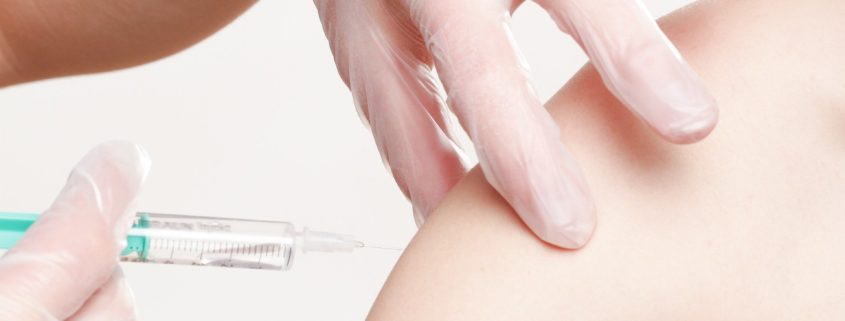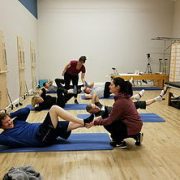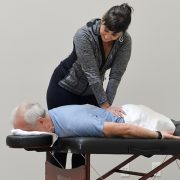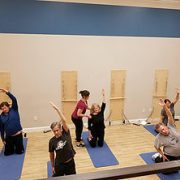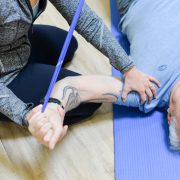Will a Cortisone Shot Help Your Nagging Shoulder Pain?
Nagging pain in your shoulder can be extremely annoying. But when it starts to interfere with things you love to do – you can’t help but wonder – Will a Cortisone Shot Help Your Nagging Shoulder Pain?
When you’ve got dull, nagging shoulder pain that just won’t go away, cortisone shots suddenly seem very attractive. They’re quick, easy, and seemingly harmless – right? Not so fast.
Just because cortisone shots are extremely routine and popular – it doesn’t mean they are the best or right thing to do.
Cortisone shots are typically administered to reduce localized inflammation inside a joint or tendon. In shoulders, it’s very common to use this procedure to reduce pain from arthritis, bursitis, rotator cuff tendonitis, and even frozen shoulders. When inflammation is confirmed to be the root source of your shoulder problem, and it’s not going away with medication, on its own, or with physical therapy – a cortisone shot may be the right course of action.
But what if inflammation is not the root source of your problem? What if inflammation is actually a secondary symptom?
This is where most of the confusion lies in the medical community. While it might not seem like a big deal (pain is pain, right?) – it’s a problem if you keep getting cortisone shots when you don’t actually need them.
Why?
Well overuse of cortisone shots can cause degeneration of your tendons and joint structures. So you only want to get one when you know: 1) it’s going to help and 2) if it’s necessary.
But how do you know? The key is in understanding the source of your pain. With chemical sources of pain, the source is inflammation and a cortisone shot is a good idea. But when it comes to mechanical pain, inflammation may exist but it’s not the source of your shoulder problem. In these cases, cortisone is either not helpful – or worse – it “works” but then masks your problem, sometimes for years.
Let’s talk about the two sources of Shoulder pain to help you understand.
“Chemical Pain”
Chemical pain is the result of your body’s natural inflammatory response to injury. It’s a complex chemical reaction that occurs after tissue damage that involves the releasing of chemicals from your blood and other cells to “flush out” the area and start the healing process.
A good example of this is when you fall and sprain something. The sprain causes temporary tissue damage so your body creates inflammation to heal it. Normally this process only lasts a few days, your pain subsides, and you’re back to normal in no time. But sometimes this inflammatory process lingers longer than it should.
For various reasons the accumulation of toxic chemicals sticks around and the result is constant irritation to the nerves and surrounding tissues. Constant, dull pain, even at rest, that tends to be very sensitive to any and all movement is often a tell-tale sign that you’re dealing with pain that is chemical in nature. In this case, a cortisone injection could be a good course of action for you.
“Mechanical Pain”
Mechanical pain does not need a cortisone shot and it won’t respond well to it. The hallmark sign of mechanical pain is that your pain will come and go based on certain activities, movements, or positions. It’s not constant and throbbing like with chemical pain. Eighty percent of all musculoskeletal problems – including shoulder pain – are mechanical in nature.
Now, the real problem is that whether or not your pain is mechanical, a cortisone shot often does take away your pain. Not only is this confusing – but many people question why they should even be concerned about this. Well – when the pain and inflammation you’re experiencing is secondary – which is often the case with mechanical pain.
You never actually treat the true source of your shoulder pain when you “cover it up” with a cortisone shot.
For example, you might have an irritated rotator cuff tendon or arthritis that is exacerbated because of poor posture or immobility in your shoulder joint. If you inject cortisone into your tendon or joint, the pain will likely be relieved. But this will only be temporary. It’s only a matter of time before your poor posture and movement habits cause irritation and pain again. This is the vicious cycle I see a lot of folks get themselves into. You risk never fixing the real problem. And irreversible damage to your tendon that might eventually need to be fixed surgically.
Moral of this story… don’t rush to get a cortisone shot just because you’ve been told you have inflammation.
You must figure out the source of your inflammation first. Cortisone shots are not necessary if your pain is mechanical in nature. And it might actually prolong your problem. If your pain comes and goes, or you have good days and bad days, this is a classic sign that your pain is likely coming from a mechanical source.
Your best course of action is to work with someone who understands and specializes in this. I’ve seen many cases where getting a cortisone shot provides a false sense of hope, and as a consequence, delays quality treatment that you should be getting instead.
Are you local to Portsmouth, NH?
Request to speak to one of my specialists to see if we would be the right fit to help you get out of pain. CLICK HERE to request a Free Discovery with one of my specialists.
If you can’t wait for the call – get our free guide to neck and shoulder pain now.
This totally free guide – written by leading back pain specialist, physical therapist, and movement expert, Dr. Carrie Jose – reveals seven easy ways (plus a bonus section!) that are PROVEN to help you ease neck and shoulder pain quickly – without pain medication, procedures, or surgery.
Click here to download the guide!
Dr. Carrie Jose, Physical Therapist and Pilates expert, owns CJ Physical Therapy & Pilates in Portsmouth and writes for Seacoast Media Group. To get in touch email her at [email protected] or call 603-605-0402

